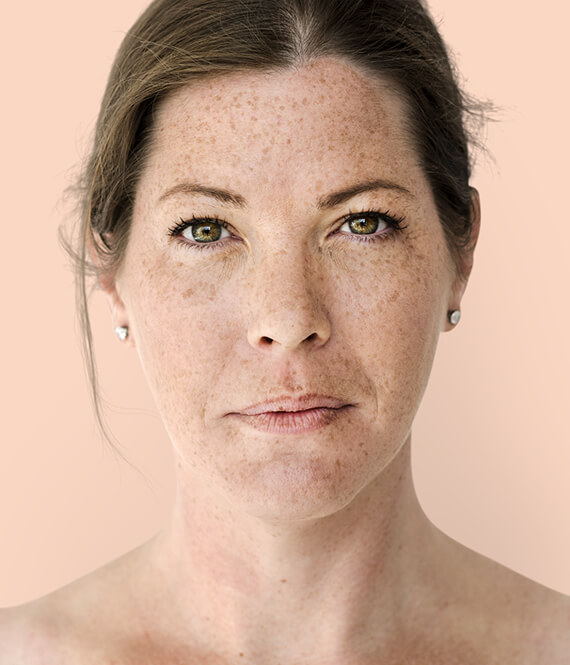
Does Alcohol Change Your Face?
We recommend helpful products in our articles. Read our full disclosure here. The content on this website is not intended to be a substitute for professional advice, diagnosis, or treatment.
Do you know that alcohol can actually change your facial features?
It’s true!
There are a few different ways that alcohol can alter your appearance, and some of these changes are more permanent than others.
In this blog post, we’ll discuss the different ways alcohol can impact your face.
We’ll also offer some tips for reducing the risk of developing unwanted facial changes due to alcohol consumption.
Read on to learn more about this interesting topic!
The Science of Alcohol and Its Effects on the Body
The science of alcohol is fascinating, and it’s especially interesting to think about how alcohol affects the human body.
For starters, it’s important to know that alcohol is a depressant.
This means that it slows down the central nervous system, which can lead to slurred speech, decreased coordination, and other impairments.
Alcohol also increases the risk of accidents and injuries because it impairs judgment and motor skills.
In general, the more alcohol someone drinks, the greater the impairments will be.
Additionally, alcohol can cause dehydration, which can lead to headaches, fatigue, and dry skin and mouth.
Ultimately, the science of alcohol is complex, and its effects on the human body are wide-ranging.
How Alcohol Changes the Appearance of Your Face
Alcohol is a substance that many people enjoy regularly.
Whether you have a glass of wine with dinner or a few drinks at a party, alcohol can have an enjoyable and relaxing effect.
However, alcohol also has the potential to cause physical changes in your appearance, particularly on your face.
Over time, alcohol consumption can lead to:
- Wrinkles;
- Dark circles under your eyes;
- Redness in the cheeks and nose.
These are due to the effects of alcohol on the skin, which can damage collagen and decrease blood flow.
In addition, alcohol consumption can also lead to dehydration, which can further contribute to the appearance of fine lines and wrinkles.
Tips for Reducing the Negative Effects of Alcohol on Your Face
If you’re concerned about the effects of alcohol on your face, there are some tips you can follow to help minimize the damage.
- First, it’s important to stay hydrated when drinking alcohol.
Drinking water in between alcoholic beverages can help to keep your skin from becoming dried out.
- Second, avoid sugary mixers, as they can contribute to breakouts.
- Third, cleanse your face thoroughly before going to bed to remove any dirt and makeup that might have been left behind.
- Finally, consider using a face serum or cream that contains ingredients like hyaluronic acid or niacinamide, which can help to boost hydration and protect the skin barrier.
Following these tips can help you enjoy alcohol while minimizing the negative effects on your face.
The Long-Term Effects of Chronic Alcohol Abuse on the Face
Alcohol abuse can take a toll on your appearance.
In the long run, it can cause your face to look visibly aged and tired.
The effects of chronic alcohol abuse on the face may include:
1. Skin Dehydration and Flushing
Alcohol dehydrates the skin, leading to dryness, redness, and wrinkles.
It also dilates blood vessels, which can give your skin a flushed appearance.
2. Changes in Nose Shape
Chronic alcohol abuse can also cause changes in the shape of your nose.
The cartilage in your nose can break down, leading to a condition called rhinophyma.
This condition causes the nose to become larger and bulbous.
3. Skin Bumps
Alcohol abuse can also cause non-cancerous growths called sebaceous hyperplasias to form on the face.
These growths are small, yellowish bumps that tend to occur on the forehead, cheeks, and chin.
If you’re struggling with alcohol abuse, it’s important to seek help to protect your health and appearance.
There are many resources available to assist you in making healthy changes in your life.
Resources for Getting Help with Alcohol Addiction
There are many resources available for those struggling with alcohol addiction.
Alcohol addiction can be difficult to overcome, but help is available.
Here are some resources that may be helpful.
- Alcoholics Anonymous: This twelve-step program offers support and guidance for those struggling with alcohol addiction.
- Rehabilitation centers: Many rehabilitation centers offer treatment for alcohol addiction.
- Counseling: Counseling can be very beneficial for those struggling with alcohol addiction.
It can provide support and guidance.
- Support groups: Many support groups are available for those struggling with alcohol addiction.
These groups can offer support and encouragement.
If you or someone you know is struggling with alcohol addiction, please reach out for help.
Seek help from a professional if you are unsure of where to start. Recovery is possible.
Final Thoughts
Alcohol addiction can have a number of negative effects on the body, including changes to the face.
These changes can include redness, puffiness, and wrinkles.
Moderate drinking is probably okay, but it might be best to avoid excessive imbibing altogether if you want to keep looking young and fresh.
In some cases, alcohol addiction can also lead to more serious problems, such as liver damage and cancer.
While you may not think of alcohol as being particularly bad for you, it’s important to remember that over time its effects can add up.
However, it is important to remember that overcoming alcohol addiction is possible.
With the right treatment, you can reclaim your life and live a sober, healthy life.
There are many treatment options available, including counseling, medication, and support groups.
If you are struggling with alcohol addiction, please reach out for help.
There is no shame in seeking help, and it could be the best decision you ever make.
Scroll down for more tips below.
"We love to research problems, examine studies, analyze solutions, and share with you ideas that make life healthier. You can learn about us and our editorial standards here. Have suggestions or feedback to share? Send us a message!."













Leave a Comment